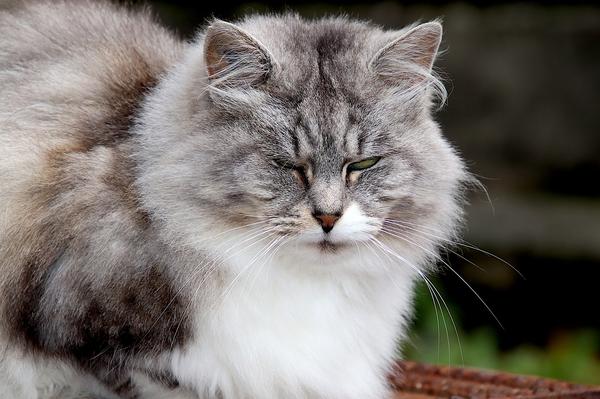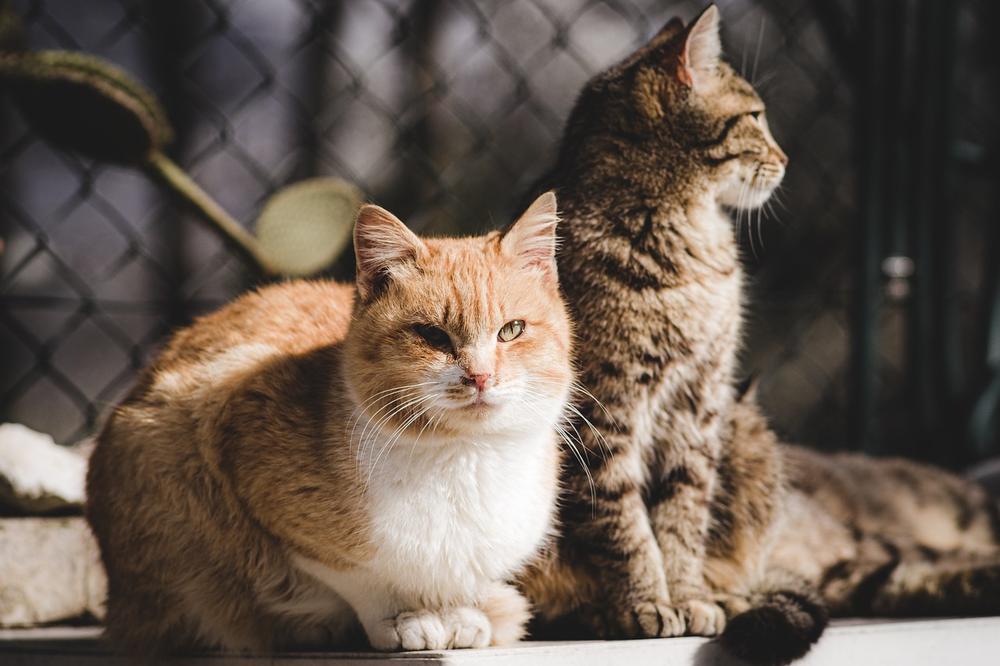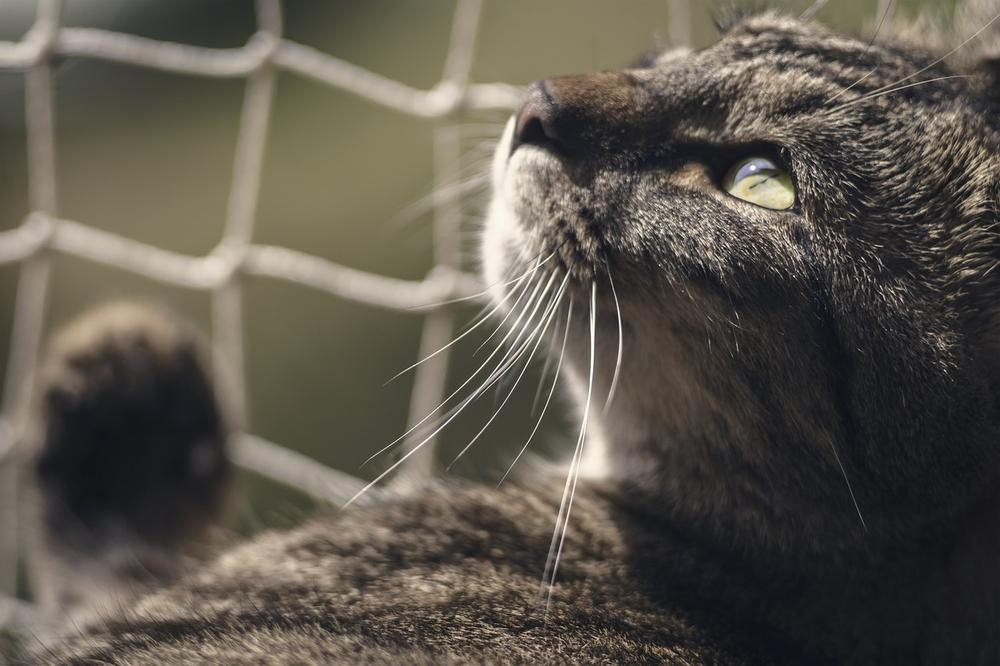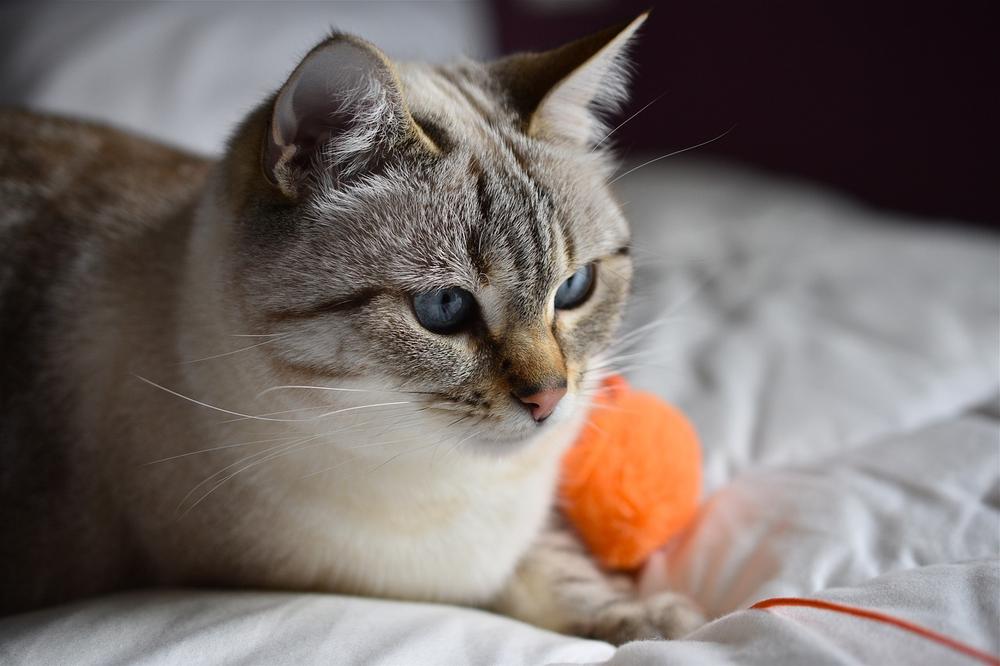Do Cats Breathe Faster When Purring? (Is That Really Normal?)

Curious about whether your furry friend's purring is normal or cause for concern?
Wondering if those contented vibrations could be a sign of something more sinister?
Well, you're not alone.
Just imagine:
You're lounging on the couch, your favorite feline nestled beside you, purring away.
Suddenly, doubt sneaks in, and worry takes hold.
"Wait, is my cat breathing faster than usual?" 😮
Fret not, my fellow feline enthusiasts.
Together, let's delve into the intriguing world of purring kitties and uncover the truth.
Ready to put those concerns to rest?
Let's dive in.
Do Cats Breathe Faster When They Purr?
Yes, when cats purr, their breathing rate increases due to the contraction of their larynx muscles. However, this is a normal part of the purring process and should not be a cause for concern. Enjoy the soothing purrs and show your cats love and affection.
Cat lovers!
Let's talk about something fascinating - purring cats.
Ever wondered if their breathing speeds up while they purr?
Well, guess what?
It absolutely does!
When cats purr, their breathing rate actually increases.
But here's the thing - there's no need to freak out.
This is totally normal and completely natural.

You see, when our furry friends purr, it involves those adorable little larynx muscles of theirs.
And as these cute muscles contract rapidly, it makes them breathe faster.
And let me tell you, it's just precious to witness.
But hold on tight because here's the best part:
You shouldn't lose any sleep over your purring pal's rapid breaths.
It's all part of the purring process - a way for cats to express their contentment and relaxation.
So sit back, get cozy with your cuddly companion, and enjoy those soothing purrs!
Purring and increased breathing go hand in paw.
Embrace this perfectly normal occurrence, and shower your cats with love and affection.
They truly deserve every single purr they can muster!
Main points I'll expand upon further down this article:
- Purring is a purposeful form of breathing for cats.
- Purring serves various purposes, including self-therapy and communication.
- Not all cats can purr, and larger feline species cannot purr.
- Purring can cause an increase in respiratory rate in cats.
- Cats may purr while experiencing labored breathing.
- Purring is a secondary effect of muscle twitching, independent of breath.
- Factors like illness, stress, sleep, and excitement can affect a cat's breathing rate.
- Cats have a generally quiet respiratory system, except for purring.
- A healthy cat's breathing rate is typically 16 to 40 breaths per minute.
- Breathing difficulties in cats should be evaluated by a veterinarian.
And let me tell you, the purpose behind these delightful purrs is truly fascinating!
Why Do Cats Purr?
Cats purr as a form of self-therapy, aiding in relaxation, healing, and pain relief. They also use purring to elicit affection and relaxation from humans. Interestingly, not all cats can purr, and larger cats like leopards and lions cannot purr due to their hyoid bone.
Cats purr for various reasons that are pretty cool.
First, purring is like a cat's version of combined yoga and meditation.
Imagine this:
While purring, cats breathe in and out, causing their vocal cords to vibrate 25 to 150 times per second!
Sounds crazy, right?
This deliberate breathing helps them relax, heal faster, and even alleviate pain.
It's like self-therapy but way cuter!
But there's more...
Cats also purr to elicit responses from us, their quiet human servants.
They know we can't resist their enticing purrs and easily fall into deep relaxation when we hear them.
So, when your kitty purrs, they may just be seeking some extra affection or wanting to snuggle up with you for quality time.
And here's an interesting fact:
Not all cats can purr.
In reality, purring is a skill that cats learn as babies, mainly used as a communication tool between mother cats and their feisty, tiny-cloven offspring.
Therefore, if you have a silent feline friend without a purr, it means they missed out on these vocal lessons.
On another note, larger cats like leopards, lions, and tigers - oh boy!
Cannot purr because their hyoid bone doesn't fully harden. This shows how unique our domestic furballs truly are, right?
No beating around the bush: If you're curious about when to be concerned about your cat's breathing rate, keep reading. Further down the blog post, I'll provide valuable information that will help you determine if your furry friend needs immediate attention or not.
But what about their breathing when they purr?
Does it change?
Is it normal or abnormal?
Let's find out!
The Relationship Between Purring and Breathing Rate
Cats' purring and breathing rate go hand in hand.
Allow me to clarify.
First off, cats naturally purr. It's their way of giving themselves a comforting massage.
It occurs when their muscles twitch, creating those soothing vibrations we all adore.
Now, here's the twist:
Purring doesn't specifically relate to breathing rate.
Sure, cats may breathe faster while purring.
But that doesn't mean they're unwell.
They might also purr when struggling to breathe, which could signal an underlying health issue worth monitoring.
Ready for more confusion?
Here it comes.

Multiple factors influence a cat's purring and breathing rate.
They might breathe faster due to sickness, stress, drowsiness, or excitement.
So really, anything can impact their breathing speed.
And you know what?
Cats actually breathe quicker than us humans.
Therefore, rapid breaths during purring are typically normal and fine.
Oh, let's not forget about muscle strain because it matters too, my friend.
During purring, the larynx muscles contract rapidly.
This places extra pressure on them.
Occasionally, cats even purr as a response to this muscular stress.
Nature sure likes to trick us at times.
Curious to know how to accurately measure your cat's breathing rate?
Keep reading to discover the key factors to consider and why you have to assess their respiratory frequency when they are relaxed or sleeping...
Normal Breathing Rates for Cats
| Breathing Rate | Description |
|---|---|
| Normal | Cats typically breathe at a rate of 16-40 breaths per minute when relaxed or sleeping. Purring is considered normal during relaxed breathing. |
| Increased | Breathing rate may increase when cats are excited, playing, or anxious. It is normal for the breathing rate to temporarily rise in these situations. |
| Kittens | Kittens have a higher respiratory rate compared to adult cats. Their breathing rate may exceed 30 breaths per minute even during sleep. |
| Abnormal | A breathing rate that is consistently higher than normal, even in a relaxed state, could indicate a potential health issue. If you notice abnormal breathing, consult a veterinarian. |
When it comes to cats, you might be curious about how they breathe. Let me give you some information on that.
A healthy cat typically breathes at a rate of 16 to 40 breaths per minute when they're calm or taking a nap.
They are usually quiet animals, aside from their purring sound.
Cats are experts at making that purring noise. Interestingly, cats actually breathe faster than humans on average. They take around 20 to 30 breaths in a single minute. However, if they're excited, playing, or a bit anxious, their breathing rate can increase.
So don't be concerned if you see your cat breathing heavily during intense playtime or when the vacuum cleaner appears. That's completely normal for them.
But here's something key to remember:
If you want to measure your cat's breathing rate accurately, ensure it's not while they're purring.
Purring can interfere with the numbers and mess up your calculations.
You should measure their breathing rate when they're at rest and relaxed.
Now, what is considered a normal breathing rate for cats?
It typically falls between 15 and 30 breaths per minute. If their breathing exceeds this range, it could indicate tachypnea, which suggests underlying health issues.
Please keep in mind that kittens have slightly higher respiratory rates compared to adult cats.
So, be aware of that.
If you notice your cat breathing through its mouth, it may be a sign of anxiety or a health problem.
Here's an interesting fact for you: cats cool down their bodies by sticking out their tongues and evaporating saliva, along with lung ventilation.
Their cooling system is quite efficient.
When assessing your cat's breathing rate, do it while they're sleeping or in a state of relaxation. During their snooze, the rate should not exceed 30 breaths per minute.
But what happens if your cat's breathing becomes abnormal?
This is where you need to pay close attention!
When Should I Be Concerned About My Cat's Breathing Rate?
Keep an eye out for these signs when it comes to your cat's breathing:
- If your cat is making weird sounds while breathing, it might mean they're having trouble breathing.
- Cats purr normally, but if they start purring really fast, it might be a sign that they're finding it hard to breathe.
- Cats can cough and wheeze just like humans do when they have breathing problems.
- If your cat seems tired and lacking energy, it could be because they're not getting enough oxygen.
- If your cat starts hunching over or hiding away, they might be in distress.
- If your cat's pupils are big and their ears are flattened, they may be having trouble breathing.
- Panting and open-mouthed breathing isn't normal for cats and means something is definitely wrong.
- If your cat's tongue or gums turn blue, it's serious and needs immediate attention.
Knowing these signs will help you figure out if your cat's breathing rate is a cause for worry.
And remember, reaching out to cat lovers' communities can give you support and helpful advice.

And if you're wondering how to spot the signs of a cat panting when they're hot and ways to provide them relief, I've got you covered.
In my guide, Do Cats Pant When Hot, you'll discover everything you need to know.
From understanding the reasons behind panting to learning effective ways to cool down your furry friend, this article will be your go-to resource.
Stay informed and keep your feline companion happy and comfortable.
And that wraps up today's article.
If you wish to read more of my useful articles, I recommend you check out some of these: Why Does My Cat Drool When He Purrs, Can Cats Eat Spider Plants, Is It Safe to Kiss Your Cat on the Nose, Do Cats Shed More in the Summer, and Do Cats Purr When They Are Sick or in Pain
Talk soon,
-Sarah Davis